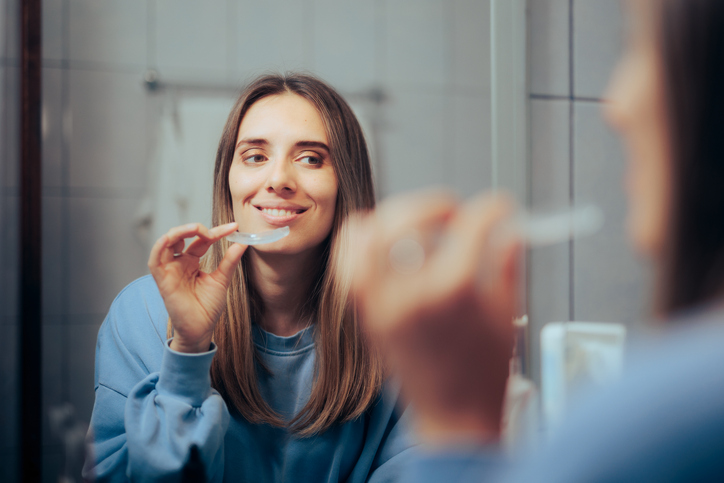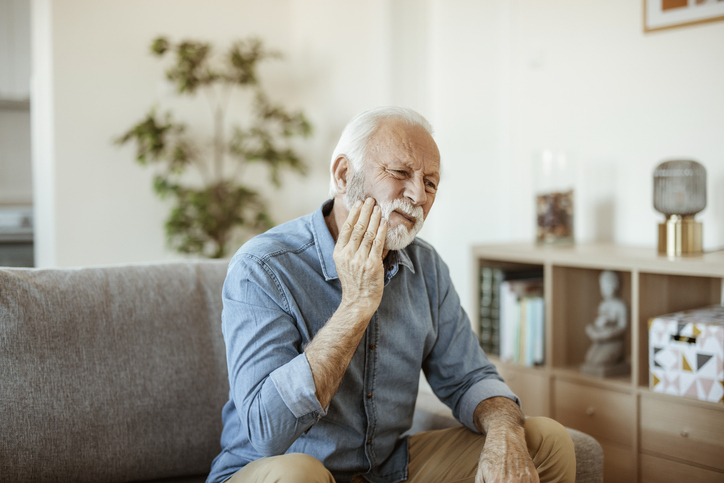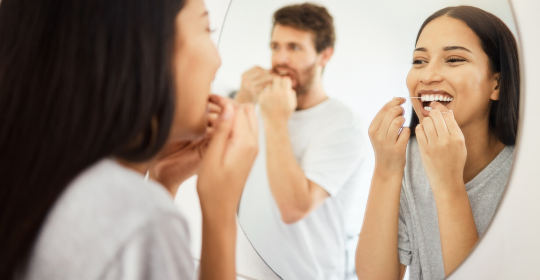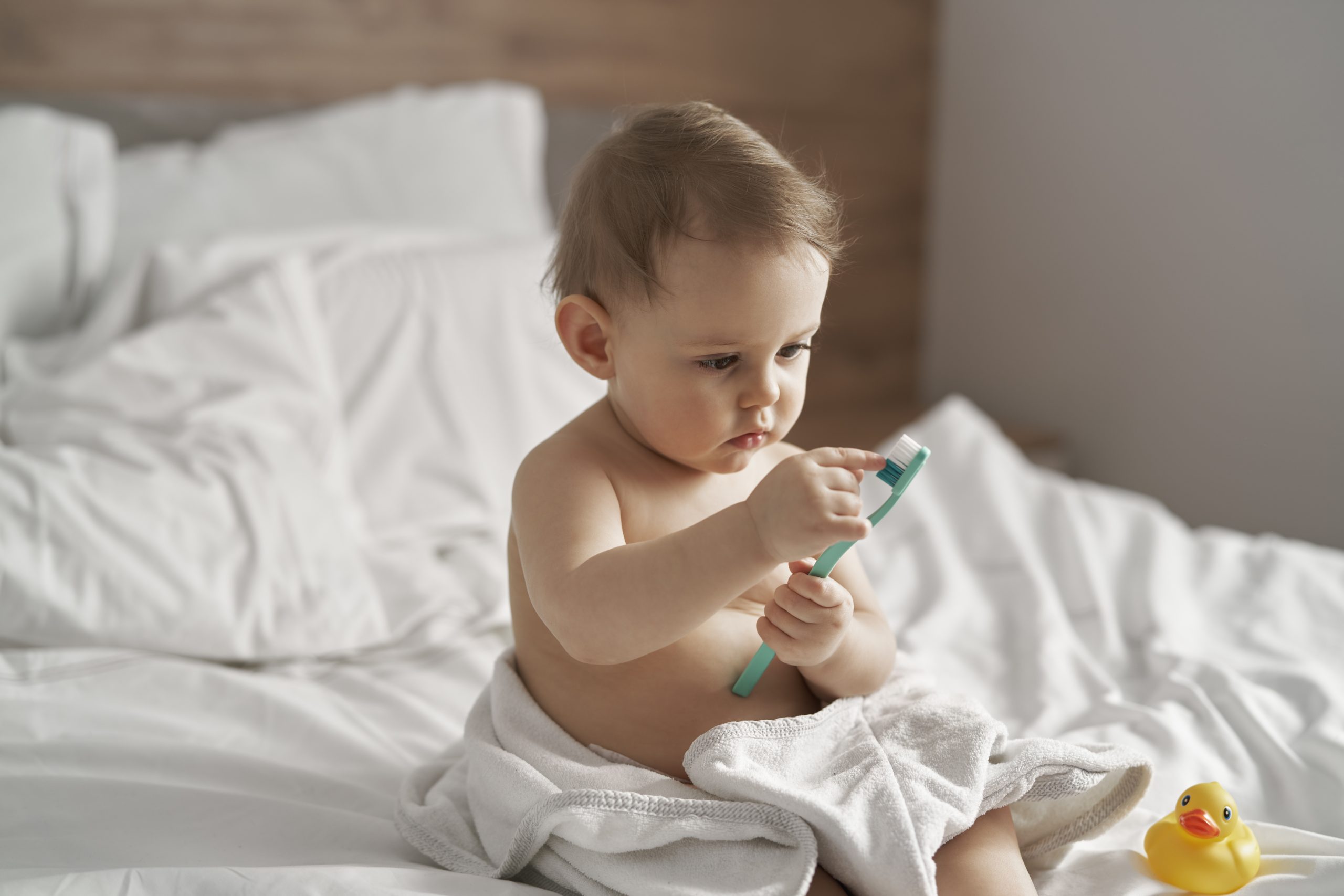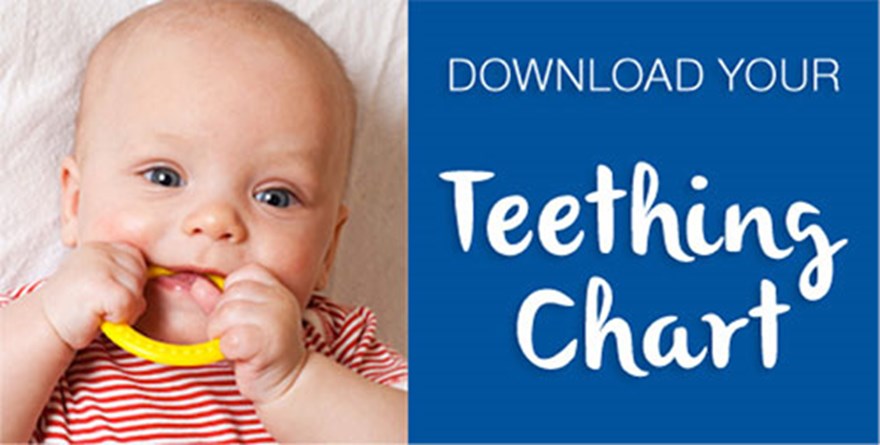 21 September 2022
21 September 2022
Is your baby teething? Everything you need to know about teething from your local dentist.
Teething is the emergence of the first teeth through a baby’s gums. Baby teeth begin to develop in the jawbone while the baby is still in the womb and prior to birth. Ordinarily the first teeth appear about 6 months of age, but this can vary. On average however, children will have their complete set of 20 baby (or primary) teeth by the time they turn 3.
Babies can become irritable during the teething process and may experience the following symptoms:
Teething symptoms
- Periods of irritability
- Disrupted sleep
- Change in eating patterns
- Dribbling more
- Wanting to chew things
- Tender and swollen gums
- Slightly higher than normal temperature
- Cheek rubbing and ear pulling
While signs and symptoms of teething may vary, persistent or high fevers and rashes are not normally associated with teething and if present should be checked by your medical practitioner.
Baby teeth can arrive in varying orders, however in most children the first teeth to appear are the two lower middle teeth. View our teething chart here.
Relief from teething
Your child may experience sore or tender gums during teething. Relief can often be found in the following ways:
- With washed hands, massage baby’s gums with a clean finger
- Teething rings – these can be refrigerated for further comfort (but do not freeze).
- Consult your Dentist, Medical Practitioner or Pharmacist before giving any medicated products to your child. Depending on how old your child is, some products may not be advisable.
Looking after baby teeth
Oral health care begins at birth. Prior to teeth erupting, a soft clean cloth can be used to gently wipe your babies gums. Once teeth begin to appear, use a children’s toothbrush (one with soft bristles and a small head) and plain water to gently cleanse the teeth. As your child grows it is helpful to encourage good oral hygiene habits early, brushing teeth morning and night. Use a small amount (just a smear) of children’s toothpaste only when your child is old enough to spit it out (usually after 18 months of age). Reading the directions on the toothpaste will help select the appropriate product for your child pending their age. Introduce flossing as teeth erupt and their sides begin to touch (usually about 2 ½ years old).
As many children do not have the manual dexterity to properly cleanse and floss their teeth, until about 8-10 years of age, it is helpful to assist/supervise tooth brushing to ensure teeth are cleaned thoroughly. The Australian Dental Association recommends that children see a Dentist by their 1st birthday. An early visit will allow parents to discuss preventive dental care for their child and help children to accept dental visits as a normal part of caring for themselves as they grow.
It is extremely important to care for baby teeth, even though they are lost and replaced by adult teeth. Not only are baby teeth important for eating and speech, they are space savers for the adult teeth. Adult teeth as they erupt push out the baby teeth they replace, however when a baby tooth is lost early, the neighbouring baby teeth can move and close the gap. As a result the space for the underlying adult tooth can be lost. This can increase the need for Orthodontic treatment at a later date.
Avoiding decay in baby teeth will also avoid potential pain and discomfort for your child which can be associated with advanced decay and/or food getting trapped in the holes caused by the decay.
How to avoid decay in baby teeth
Decay is associated with certain types of bacteria and a frequent sugar intake. Babies aren’t born with decay causing bacteria in their mouths, however these can be transferred to baby unintentionally. Bacteria can be shared via:
- Cleaning a dummy by putting it in your mouth first, then passing it to your baby. Try where possible to rinse the dummy using water to clean it where necessary.
- Sharing eating utensils – try to keep baby’s spoon just for baby
- Sharing toothbrushes – it is important that all family members have their own toothbrush
- Allowing children to constantly put their hands in your mouth.
While reducing the transfer of bacteria will help reduce the risk of decay, it is also important to avoid a high sugar diet. Limit the frequency of sugary snacks and be careful to check the sugar content on packaging as foods often classed as healthy for babies can have a high sugar content and are best eaten in moderation or avoided altogether.
It is also very important not to put baby to bed with a bottle of anything other than water. It is better to feed your child first and then allow them to go to bed without the bottle. Bottles containing milk or juice will allow the teeth to sit bathing in sugars as baby falls asleep on the bottle. Avoiding the use of sweeteners on dummys will also reduce the risk of your child experiencing dental decay. A good rule to establish is nothing but water after cleaning teeth at night.
If you would like any further information about what to expect with baby teeth coming through, what relief you can provide, or to book your baby’s first dental appointment, contact your local Pacific Smiles Dental centre or book an appointment online.

